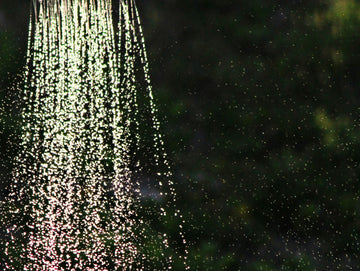Camping away from civilization lets you enjoy nature and get away from the busyness of everyday life. Eco-friendly campers and sustainability supporters can enjoy nature while reducing their impact on the environment. However, one of the biggest challenges of offgrid camping is preserving food without the convenience of modern refrigeration.
This guide will show you how to keep food fresh and safe while off the grid during your adventure. There are various methods you can use to achieve this. It is important to ensure that your food stays fresh and safe while you are away from traditional resources. By following the tips in this guide, you can enjoy your adventure without worrying about your food spoiling.
Introduction to Offgrid Camping
Offgrid camping is more than just an outdoor activity; it’s a lifestyle choice. By disconnecting from the grid, campers minimize their reliance on conventional utilities and adopt more sustainable practices. This approach aligns perfectly with the values of eco-conscious individuals who seek to reduce their environmental impact. Offgrid camping is a great way for outdoor lovers to enjoy nature and practice sustainable living.
The Importance of Food Preservation
Preserving food is crucial for any camping trip, but it becomes even more vital when you’re off the grid. It's important to keep your food preserved while traveling to avoid getting sick.
Properly preserved food is safe and nutritious. This lowers the risk of foodborne illnesses during your trip. It also helps in managing resources efficiently, as spoiled food can lead to unnecessary waste. More importantly, mastering food preservation techniques allows campers to enjoy a variety of meals, enhancing their overall camping experience.
Techniques for Preserving Food Without Refrigeration
Dehydration
Dehydration is one of the oldest methods of food preservation. By removing moisture from food, you prevent the growth of bacteria, yeast, and mold. This technique is especially useful for fruits, vegetables, and meats.
You can use a solar dehydrator or even air dry your food in a sunny, dry environment. Dehydrated foods are lightweight and take up less space, making them perfect for camping trips.
Canning
Canning seals food in airtight containers and then heats them to kill any harmful microorganisms. This method is excellent for preserving soups, stews, fruits, and vegetables. While canning requires some preparation and equipment, it ensures your food remains safe and nutritious for extended periods. For offgrid campers, canned foods are convenient and easy to store.
Pickling
Pickling preserves food in an acidic solution, usually vinegar, which inhibits the growth of spoilage-causing bacteria. This method works well for cucumbers, carrots, beets, and other vegetables. Pickled foods add a flavorful and tangy twist to your camping meals. Moreover, you can prepare them in advance and store them in jars, making them a great addition to your offgrid pantry.
Smoking
Smoking is a time-honored method for preserving meat and fish. By exposing food to smoke, you create an inhospitable environment for bacteria while adding a rich, smoky flavor. Setting up a small smoker at your campsite allows you to preserve your catch of the day or other proteins you bring along. Delicious smoked foods can be enjoyed as-is or added to other dishes.
Fermentation
Fermentation involves using beneficial bacteria to convert sugars into acids, preserving the food in the process. This method is great for making sauerkraut, kimchi, and yogurt. Fermented foods are rich in probiotics, which are excellent for gut health. They also bring unique flavors and textures to your meals, making them a favorite among offgrid campers.
Using Portable Refrigeration with Solar Panels or Power Stations
While traditional refrigeration might not be available, portable refrigeration solutions powered by solar panels or portable power stations are viable options. These setups allow you to keep perishable items like dairy, meat, and certain vegetables fresh for longer. Investing in a portable fridge and a reliable solar panel setup can significantly enhance your offgrid camping experience. It provides a blend of modern convenience while maintaining the essence of sustainable living.
Best Practices for Offgrid Food Storage
Storing your preserved food properly is essential to ensure it stays fresh and safe. Use airtight containers to protect food from moisture, pests, and contaminants.
Store dry goods in cool, dark places to extend their shelf life. For canned and jarred foods, make sure to label them with the preparation date so you can use them within a safe timeframe. Organize your food and store it properly to have a successful offgrid camping trip.
Case Studies and Real-life Examples
Learning from others’ experiences can provide valuable insights and inspiration for your offgrid camping adventures. For example, Jane, who loves camping, explains how she dehydrates and cans food to get ready for her trips. She dehydrates fruits and vegetables, cans soups and stews, and uses a solar-powered fridge for dairy products. Her approach ensures she has a diverse menu while minimizing waste.
Another example is Tom, who incorporates smoking into his food preservation routine. He sets up a small smoker at his campsite and preserves fish and meats, adding rich flavors to his meals. His method not only keeps his food safe but also enhances his overall camping experience.
Tips for Planning Meals and Shopping for Offgrid Camping
When planning offgrid camping meals, think about how to preserve food and choose foods that work well with preservation methods. Make a meal plan that includes a variety of preserved foods to keep your menu interesting. When shopping, look for fresh, high-quality ingredients that will withstand preservation processes. Purchase in bulk to reduce packaging waste and bring along necessary equipment for food preparation and storage.
Conclusion and Call to Action
Preserving food for camping off the grid is important. It helps you have tasty and healthy meals during your adventure. Learn how to dehydrate, can, pickle, smoke, and ferment food. This will help you create a variety of dishes and reduce waste and environmental impact.
We encourage you to share your offgrid camping tips and stories with our community. Exchange ideas, learn from fellow campers, and contribute to our shared goal of sustainable living.
If you have any experiences or advice, we’d love to hear from you. Don't forget to check out our other blog posts and subscribe for more tips on living off the grid and sustainability. Your next great adventure awaits!




